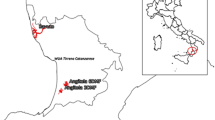Abstract
This study examines management problems of WUA C1 of the Kpong Irrigation Scheme (KIS) in Ghana using the 13 evaluation indicators derived from theories of common-pool resources management proposed by Ostrom and Freeman. The evaluation shows that WUA C1 lacks the indicator of water control ability even though C1 has fine irrigation facilities that enable independent water management within WUAs. The reason is that KIS has been managed by Joint System Management (JSM) in which the KIS Office of Ghana Irrigation Development Authority operates and maintains the main canal, main drainage and main road, while WUA C1 operates and maintains the branch canal and below. However, the KIS Office could not fully operate and maintain the irrigation facilities because of budgetary limitations. In irrigation management transfer, it is common to set JSM that allots the management of main canals to the government (or scheme management entity), and the management of lateral canals and below to WUAs. However, from the perspective of WUA organizational evaluation, it is possible that JSM harms the water control ability of WUAs.

Source: MASAPS-KIS, JICA

Source: MASAPS-KIS, JICA

Source: MASAPS-KIS, JICA
Similar content being viewed by others
Notes
For a detailed explanation of each indicator’s evaluation, see Kakuta (2019).
References
Food and Agricultural Organization (2007) Irrigation management transfer: worldwide efforts and results. FAO Water Reports 32, IWMI and FAO
Freeman D (1989) Local organization for social development: concepts and cases of irrigation organization. Westview Press, Colorado
Freeman D (1992) Creating a supportive policy environment for irrigation system turnover and joint management. Irrigation Management Project HMG/USAID/Nepal Technical Assistance Team
Freeman D (2009) Personal conversation by e-mail on August 27, 2009
Hatcho N, Tsutsui H (1998) Irrigation management transfer and participatory irrigation management. Rural Environ Eng 35:5–14
Ishii A, Sato M (2003) PIM. J Rural Plan Assoc 22(3):239–240
Kakuta I (2015) Impact of participatory irrigation management on the Bohol irrigation project in the Philippines. J Inst Asian Stud 41:123–162
Kakuta I (2017) Success factors of participatory irrigation management: case of the Busao communal irrigation system in Bohol, Philippines. J Inst Asian Stud 43:179–222
Kakuta I (2019) Irrigation management problems derived from organizational evaluation of a Water Users Association at the Kpong Irrigation Scheme in Ghana. J Inst Asian Stud 45:169–217
Kulkarni SA, Tyagi AC (2012) Participatory irrigation management: understanding the role of cooperative culture. International Commission on Irrigation and Drainage (ICID). Presented in international annual UN-Water Zaragoza conference 2012/2013, pp 1–8
Lepper T (2007) Reregulating the flows of the Arkansas River: comparing forms of common pool resource organizations. Dissertation, Colorado State University
Maass A, Anderson R (1978) …And the desert shall rejoice: conflict, growth and justice in arid environments. RE Krieger, Malabar
Martin E, Yoder R (1988) A comparative description of two farmer-managed irrigation system in Nepal. Irrig Drain Syst 2:147–172
Ostrom E (1990) Governing the commons: the evolution of institutions for collective action. Cambridge University Press, New York
Sato K, Sato M (2006) Gana koku ni okeru koukateki nominsankagata kangaikanri notameno sosiki taisei (Japanese). Trans JSIDRE 245:85–93
Sato M et al (2007) Nomin sankagata mizukanri no genri to jitugen housaku (Japanese). J JSIDRE 75(7):53–58
Siy RY Jr (1982) Community resource management: lessons from the Zanjera. University of Philippines Press, Manila
Svendsen M, Trava J, Johnson III SH (1997) Participatory irrigation management: benefits and second generation problems. CIHWAM/IAM-B and World Bank
The Project for Enhancing Market-Based Agriculture by Smallholders and Private Sector Linkages in Kpong Irrigation Scheme (MASAPS-KIS) (2016) Kpong Irrigation Scheme baseline survey report. Ghana Irrigation Development Authority (GIDA)-Japan International Cooperation Agency (JICA)
The Project for Enhancing Market-Based Agriculture by Smallholders and Private Sector Linkages in Kpong Irrigation Scheme (MASAPS-KIS) (2017a) Ponkangaichiku ni okeru shokibonouka sijousikougata nougyousien minkan sector renkei kyouka project (Japanese). Ghana Irrigation Development Authority (GIDA)-Japan International Cooperation Agency (JICA)
The Project for Enhancing Market-Based Agriculture by Smallholders and Private Sector Linkages in Kpong Irrigation Scheme (MASAPS-KIS) (2017b) MASAPS Project activity. Ghana Irrigation Development Authority (GIDA)-Japan International Cooperation Agency (JICA)
Yamauchi J (2017) Tankisenmonka (sidoukamoku: suiri kumiai hyouka) no gyomu naiyo nituite (Japanese). Ghana Irrigation Development Authority (GIDA) - Japan International Cooperation Agency (JICA) (unpublished)
Acknowledgements
The author wishes to thank the Japan International Cooperation Agency (JICA), the Ghana Irrigation Development Authority (GIDA), and all concerned in the Kpong Irrigation Scheme (KIS) for their cooperation with the author’s survey and research. Also, the author wishes to thank Dr. David Freeman, Professor Emeritus, Colorado State University, for his valuable comments and suggestions.
Author information
Authors and Affiliations
Corresponding author
Rights and permissions
About this article
Cite this article
Kakuta, I. Irrigation management problems derived by a WUA evaluation at the Kpong Irrigation Scheme (KIS) in Ghana. Paddy Water Environ 17, 141–150 (2019). https://doi.org/10.1007/s10333-019-00706-5
Received:
Revised:
Accepted:
Published:
Issue Date:
DOI: https://doi.org/10.1007/s10333-019-00706-5




